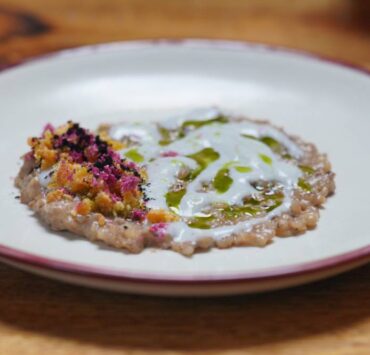Breastfeeding was my biggest reality check

Motherhood is a journey that comes in stages. Starting from pregnancy and throughout a child’s lifetime, the series of emotional, physical, and mental challenges that continuously takes its toll on a woman’s well-being is endless.
Immediately after the fatigue of pregnancy and the shock of childbirth comes the task of breastfeeding. I remember what I initially thought nursing would look like: my baby lovingly cuddled up against my bosom, drinking the liquid gold produced by my body, as I relaxed and stroked the hair on her delicate scalp. But reality set in quite quickly: it was far more difficult than I anticipated it would be. It looked nothing like what I saw on Instagram or in movies, and I’m sure many moms with the same experience would agree.
Through the highs and lows of breastfeeding, I learned a lot about myself and about what it truly means to be a mother. Based on both personal reflections and the best pieces of advice I’ve been told, here are some things I can share with my fellow nursing moms.
It may or may not drive you insane
Cracked and bleeding nipples, clogged ducts, a hungry infant with an unsoothable temper, and long sleepless nights spent cluster feeding to no avail—I’m not going to sugarcoat it. The less-glamorous side of breastfeeding is often overlooked.
Despite how hard I tried, when my eldest was a month old, I found out at her routine checkup that she had lost weight, instead of gaining the intended amount, because I wasn’t producing enough to meet her demand. I was close to giving up and often found myself in tears—thinking of how I was failing so badly as a mother, so early on. I envied the mothers I saw around me who made it look so effortless. I constantly questioned why something that was supposed to be so biologically simple was also so complicated.
One thing I read that really stuck with me was that you cannot force yourself to give your baby what you think is best if it means compromising your own well-being.
And I understood that. Time and time again, it has already been proven by doctors and experts that a woman’s mind and body is never the same after bearing children. Mental health conditions are real, and the surging postpartum hormones can make things exponentially worse. Because of this, I had to learn to forgive myself for everything I was feeling, but more importantly, to forgive myself for the things I could not do.
Breastfeeding is more than just you and your baby—knowing when to ask for help is vital
Know when to take a step back and assess whether or not breastfeeding is a sustainable choice for you. At my lowest, I turned to fellow moms for guidance. One of the best tips shared with me was to ditch the latching and try pumping and bottle feeding instead. And this proved to be my saving grace.
After a month of struggling, I established a better routine, and the best part was that other people could now step in to feed my daughter, so I could take a break.
But when I gave birth to my second child, I was suddenly hit with a reminder yet again of how difficult it is to nurse an infant. After just two nights in the hospital, I was already crying as much as my newborn was. I went straight to bottle feeding and pumping milk right after getting home—but even that proved to be a nerve-wracking experience.
Why? Because a mother’s milk supply takes about two weeks to regulate and I still had nothing to offer. A friend of mine who had just given birth stepped in and donated some of her frozen stash to me to ease the burden, and for that, I am thankful. It kept me sane, but most importantly, it kept my baby fed while my body took its time to adjust.
It takes a village, as they say. Whether it is within your family or network of friends, or in the form of lactation consultants, online communities, and other baby care professionals, don’t be afraid to ask for help. There will always be someone to lend you a hand when you need it the most.
Stick to your gut, and don’t let anyone tell you otherwise
Breastfeeding, in any form, is still breastfeeding. One of the most frustrating and ignorant things I have been told was that pumping doesn’t actually count as breastfeeding, despite the fact that my baby was exclusively consuming my milk alone and I was pumping for hours, every single day. No matter what method you choose—direct latching, exclusively pumping, mix-feeding, or using donor’s milk—your baby is fed and that’s what matters the most.
I think that the belief that breastfeeding must be forced upon a woman because it is her role as a mother or best for her child is simply not a healthy mindset to have. For me, it came to a point when I started to resent my child and my own maternal abilities. I even dreaded every single time I had to pick my baby up for a feeding session.
There is too much pressure to succeed and produce milk when, for any reason, your body cannot keep up. Stress can further aggravate the situation by negatively affecting your milk supply, which just results in an endless cycle of self-loathing, panic, and yet, still having no milk.
Your love is not measured by the ounce
Being fed is still better than being fed up. There is nothing wrong with choosing what is best for your family, even if it means giving up on your breastfeeding journey. If it comes to a point where you’ve exhausted all efforts and it still doesn’t work out, formula-fed babies can and will grow to be just as healthy and happy as breastfed ones.
Don’t get me wrong. I am not here to discourage or scare off anyone, nor am I advocating for moms to stop breastfeeding. There simply should be an equal balance in raising awareness on the importance of breastfeeding, while at the same time still acknowledging and highlighting the struggles of those who don’t have it as easy. I do believe that every mom should still give it a try, while also having the flexibility and freedom to explore other feeding methods or options—even outside of what society dictates.
Years of breastfeeding, versus even just a few drops. Milk is milk, and love is love. You can still be a good mother, regardless of how much liquid gold your body produces.

















